The complete guide to home viewing
Get Screen Gab for everything about the TV shows and streaming movies everyone’s talking about.
You may occasionally receive promotional content from the Los Angeles Times.

Pride Month is here, which means parties, protests and plenty of queer television. Parades too: On June 9, Hulu will stream the 54th annual Los Angeles Pride Parade starting at 11 a.m.; grand marshals include the actor and activist George Takei. The parade will be hosted by the “Good Morning America” weekend co-anchor Gio Benitez and the ABC7 news anchor Ellen Leyva.
Whether for a vacation binge or a night at home with friends, air conditioning on blast and cocktails at the ready, here’s a guide to queer shows — new, classic and pioneering — to make your Pride Month merry.
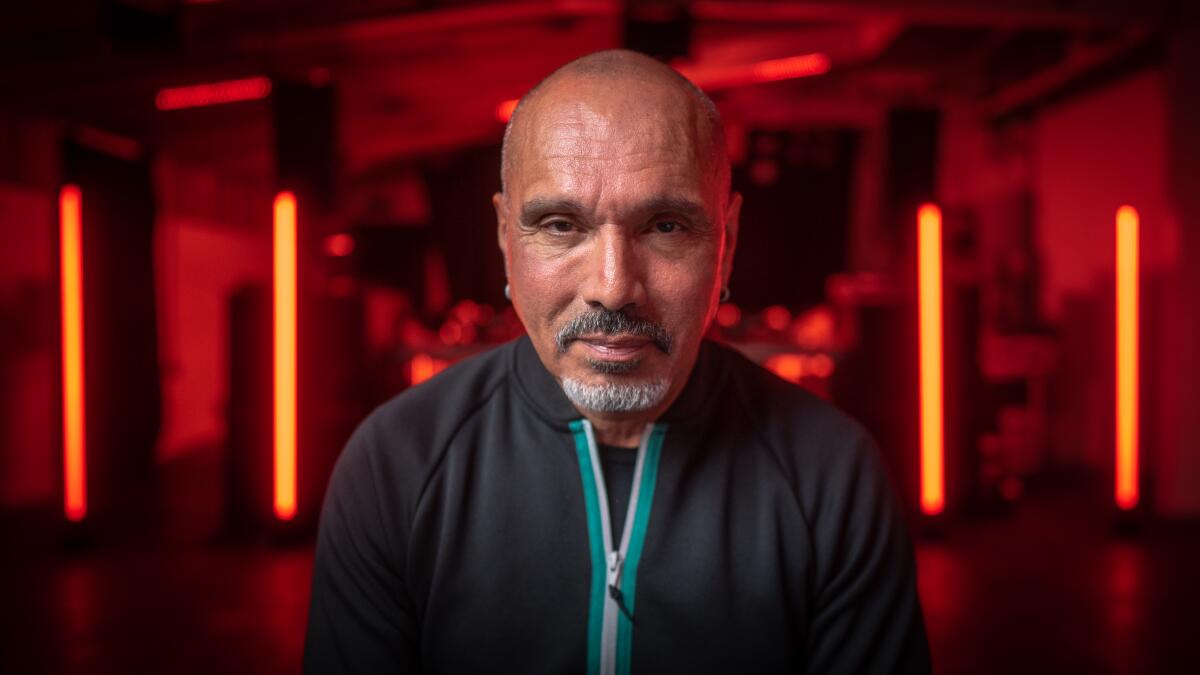
‘Disco: Soundtrack of a Revolution’
In 1970s New York, gay and Black communities got sweaty together in small clubs and basement bars to the beat of disco music, a genre that made its way into the global mainstream, thanks to singers like Donna Summer and Sylvester, and venues like Studio 54. Described as a “revisionist history” of the disco age, this new docuseries reinforces disco as a defining gay music genre and a cultural phenomenon that brought together people of all sexual orientations and gender identities. (Disco also faced a hateful, anti-gay backlash.) The three-part series also looks at how disco enabled gay men who were feeling newly empowered by the gay liberation movement to find joy and camaraderie (and sex) on the dance floor in the years before a plague changed everything. (Streaming on PBS.org June 1; airs on PBS June 18.)
This summer, you’ll have to say goodbye to at least one series, but you’ll get to say hello to revivals of “Orphan Black” and “Yo Gabba Gabba!,” some mystery miniseries and music-centered docuseries.
‘Dead Boy Detectives’
Based on Neil Gaiman and Matt Wagner’s comic book series, this paranormal fantasy is about Edwin (George Rexstrew) and Charles (Jayden Revri), teenagers born decades apart — and ghost besties now — who run a detective agency that solves supernatural mysteries. The eight-episode series, the latest in Netflix’s Sandman Universe, features tenderhearted queerness and queer characters in various stages of coming out and coming of age. Central is the chemistry between Edwin and Charles, who share a kind of love story — homoerotic, if not “Euphoria”-style sexual — that underscores the value of chosen families. In his review of the series, Times television critic Robert Lloyd called it “uncommonly well done — cleverly written, smartly cast, sensitively played, marvelously realized.” (Streaming on Netflix)
The Cat King, played by Lukas Gage, is a dangerous and fun queer villain in Netflix’s adaptation of “Dead Boy Detectives.”
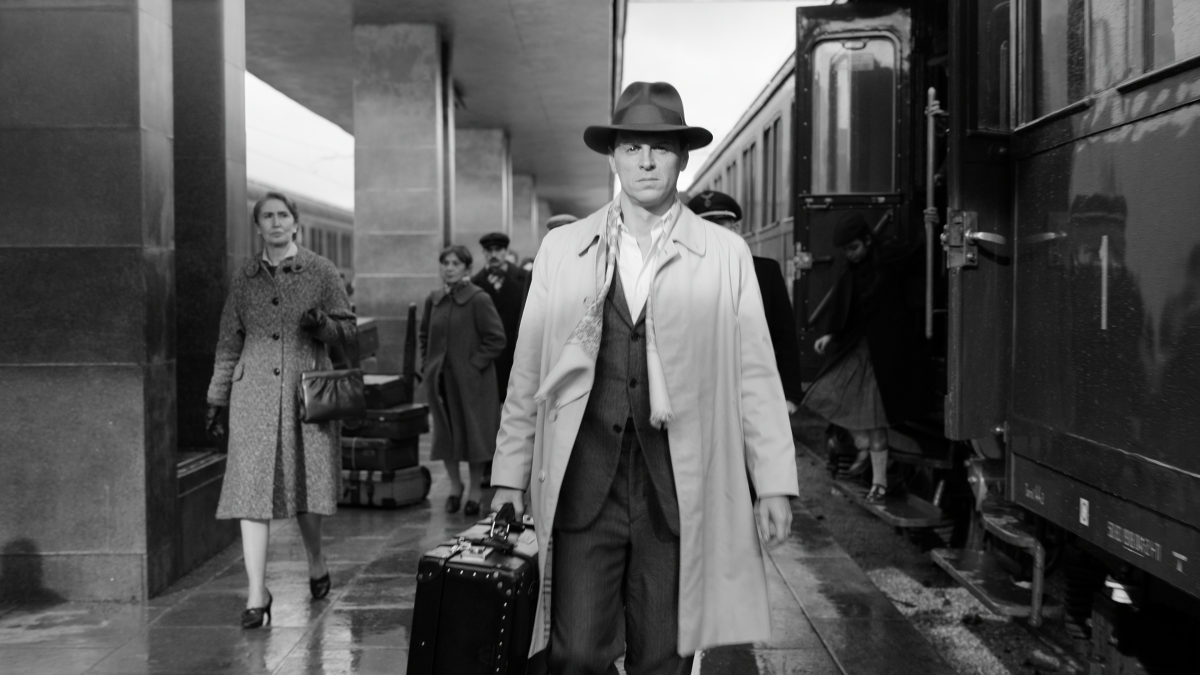
‘Ripley’
Andrew Scott, who with Paul Mescal plunged into dark emotional waters in the gay drama “All of Us Strangers,” stars as the title rogue in this slick eight-episode thriller. Adapted from Patricia Highsmith’s 1955 novel “The Talented Mr. Ripley,” the series is set in Italy in the ’60s and follows Tom Ripley — grifter, heartbreaker, psychopath — as he manipulates his way into the lives of Dickie (Johnny Flynn), a trust-fund wielding American, and Dickie’s lady friend, Marge (Dakota Fanning). The question of whether Ripley is gay is as old and unanswered as Highsmith’s novel and the 1999 film adaptation starring Matt Damon. Here, the answer is still deliciously enigmatic. In an interview with The Times, Scott said, “I love the fact that we don’t know. I think there’s a lot of people who can relate to that.” For an extra scoop of the macabre, the Oscar-winning cinematographer Robert Elswit shot the series in stark black and white. (Streaming on Netflix)
The stars of Netflix’s “Ripley,” an adaptation of Patricia Highsmith’s novel, talk about why we can’t get enough of con artists, how they’ve been duped and all those stairs in the show.
‘I Kissed a Boy’
From “The Bachelor” to “Love Is Blind,” gay men who are fans of reality dating shows have had to live through the romantic aspirations of straight people for a long time. (Thanks for trying, “Boy Meets Boy” and “Finding Prince Charming.”) Queer men get a new chance to watch romance blossom with dopamine butterflies and then crack from tear-soaked rage when the U.K.’s first gay dating show makes its American streaming premiere this month. The Australian singer Dannii Minogue — younger sister of gay diva Kylie — plays host at a swank mansion where 10 single young men meet, mingle and make out in hopes of finding a partner, or at least a lover (or if that doesn’t last, maybe a hot friend with benefits?). Crossing the pond sometime later this year on Hulu: “I Kissed a Girl,” this show’s sapphic sister. (Streaming on Hulu on June 15.)
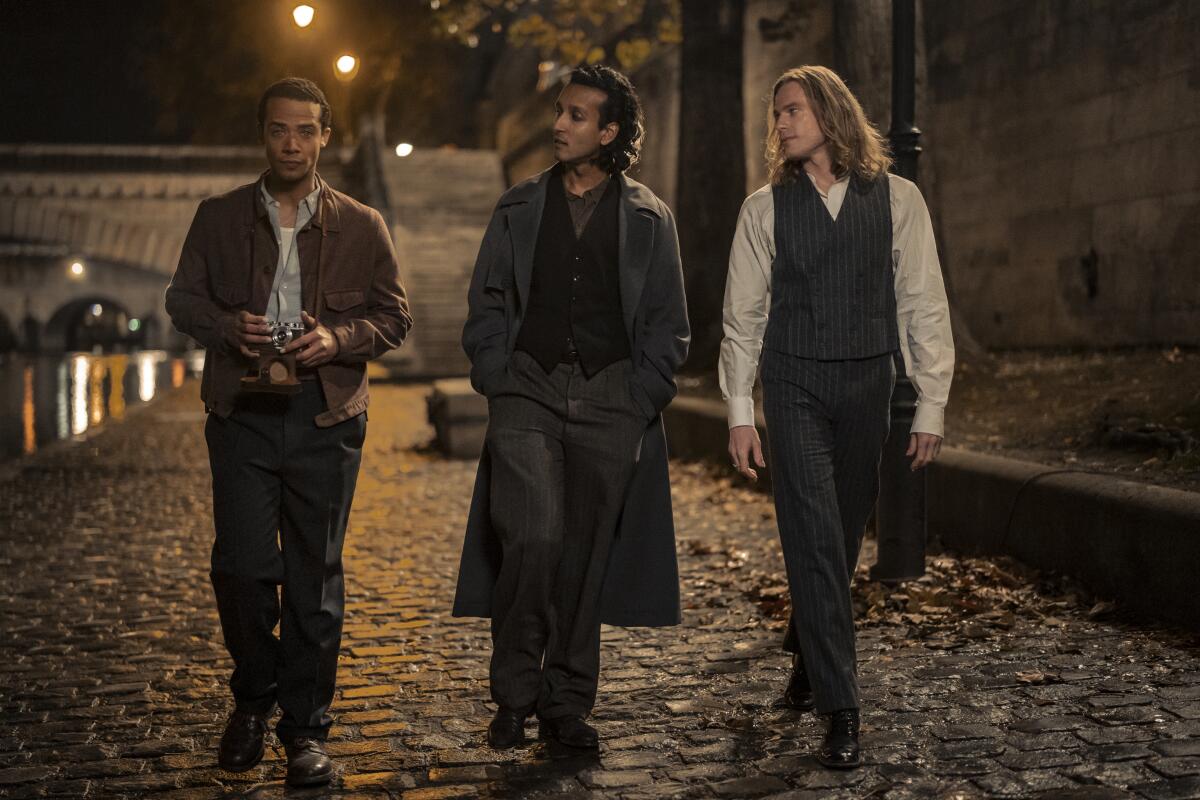
‘Interview With the Vampire’
This sleek adaptation of Anne Rice’s beloved and bestselling vampire novel is back for a second season with a few additions (a Parisian setting) and subtractions (a new actress, Delaine Hayles, plays the young but old vampire Claudia). Returning are the debonair vampires Louis (Jacob Anderson) and his servant, Rashid (Assad Zaman), who, as it was revealed in the first season, was actually Armand, an ancient vampire who has a troubled but charged relationship with Louis. Lestat (Sam Reid) is back too, haunting his lover Louis’ imagination and providing the series with dark and hallucinatory mischief. These are some hot, elegant gay bloodsuckers who speak French and flash brilliant smiles but aren’t afraid to kill to survive — kinda like Fire Island with fangs. (Season 2 episodes air weekly through June 30 on AMC; streaming on AMC+.)
‘The Second Best Hospital in the Galaxy’
Fans of queer animation will have a busy summer, with characters in every shade of LGBT and Q appearing on several new and returning shows, from “Hazbin Hotel” to “Harley Quinn.” This adults-only sci-fi comedy released in February, from the “Russian Doll” writer Cirocco Dunlap, is set at an outer space hospital where two alien surgeons, best friends Klak (Keke Palmer) and Sleech (Stephanie Hsu), treat their creature-patients’ oddball interstellar maladies in a world where gender isn’t binary and queerness is a given. The starry cast includes queer performers Sam Smith and Bowen Yang and queer favorites Maya Rudolph and Natasha Lyonne. Dunlap recently told Yahoo News that the eight episodes reflect her family’s own queer contours. “My mom is bi, my dad was gay, my sister was in a polyamorous relationship and that was my growing up experience,” she said. (Streaming on Prime Video.)
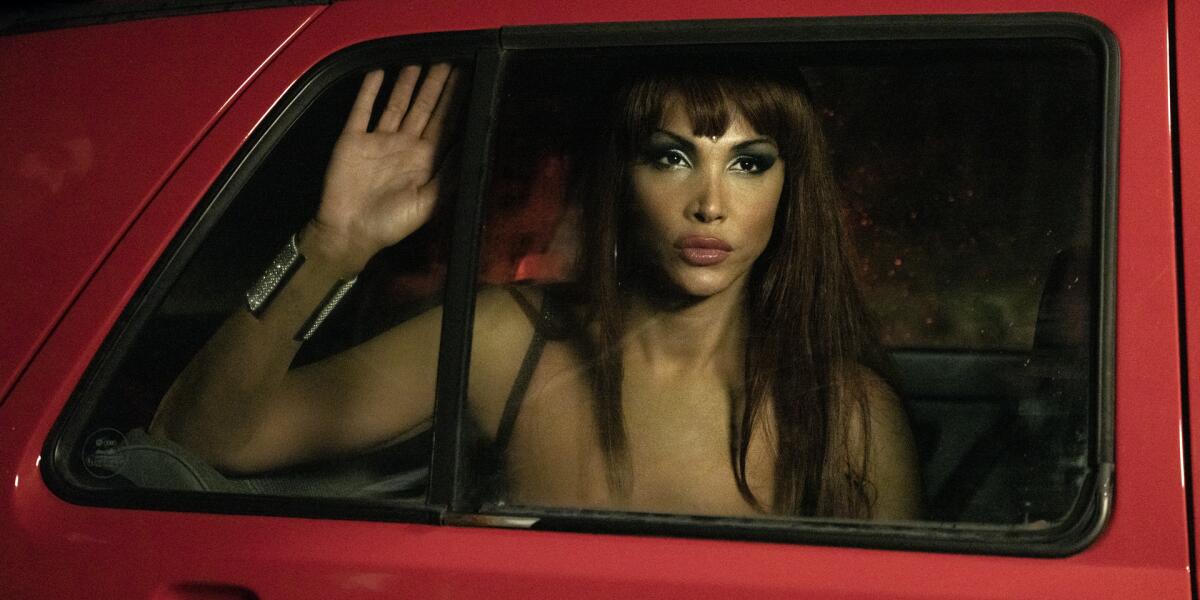
‘Veneno’
Cristina Ortiz, the Spanish transgender singer and television personality known as La Veneno (“poison” in Spanish) is the larger-than-life sensation that drives this acclaimed 2020 dramedy, a hit in Spain. Based on a 2016 book about Ortiz’s life written by the transgender journalist Valeria Vegas, the eight-part series blends Ortiz’s lived history with fictionalized accounts of what made La Veneno — she was also a sex worker and model — a pop culture star in ‘90s Spain, when much of the show is set. Here, La Veneno, who died in 2016 at 52, is played by a trio of transgender actresses — Jedet, Daniela Santiago and Isabel Torres — who portray her over the course of her life as an activist, sex symbol and life of the party but also as a transgender woman with a deeply affecting and troubled back story — one that will resonate beyond just queer and transgender viewers. (Streaming on Max.)
‘Veneno,’ about rise and fall of ‘90s sex symbol Cristina Ortiz, was a massive hit in Spain. Now, it’s poised to “stir consciences” around the globe.
‘The Bisexual’
Desiree Akhavan wrote, directed and starred in this six-episode British comedy-drama about a woman who gets a boyfriend after leaving her lesbian relationship of 10 years. When the show debuted six years ago, the reviews were mixed; the Guardian called it “neither comic nor dramatic,” but the L.A. Times said it was “exceptionally funny and heartfelt.” Since then, the show has found advocates who admire Akhavan, a bisexual Iranian American, for not sticking to the idea that sexual orientation is a binary — an observation that in a “Sex Education” and “Heartstopper” world puts this show in the ahead-of-its-time category. (Streaming on Hulu.)
‘Cucumber’ and ‘Banana’
Watch almost any new LGBTQ+ television series, and to be a gay man is to be physically pert, sexually athletic, friends with everyone at the club — in other words, young. But that’s not the case in “Cucumber,” a British series from 2015: Henry (Vincent Franklin) is Gen X, with a belly and a graying beard who struggles to navigate being gay, past the age of 40 and on the hunt for love and sex. It will come as no surprise that the creator of this series was Russell T Davies, the man behind “Queer as Folk,” the path-breaking 1999 series about a group of gay friends in Manchester, England (more on that show below). Davies’ narrative signatures — cutting wit, frank sex and dark humor — are at play here too. As a companion, watch “Banana,” Davies’ equally funny comedy about some of the other characters from “Cucumber.” (“Cucumber” and “Banana” streaming on Freevee.)
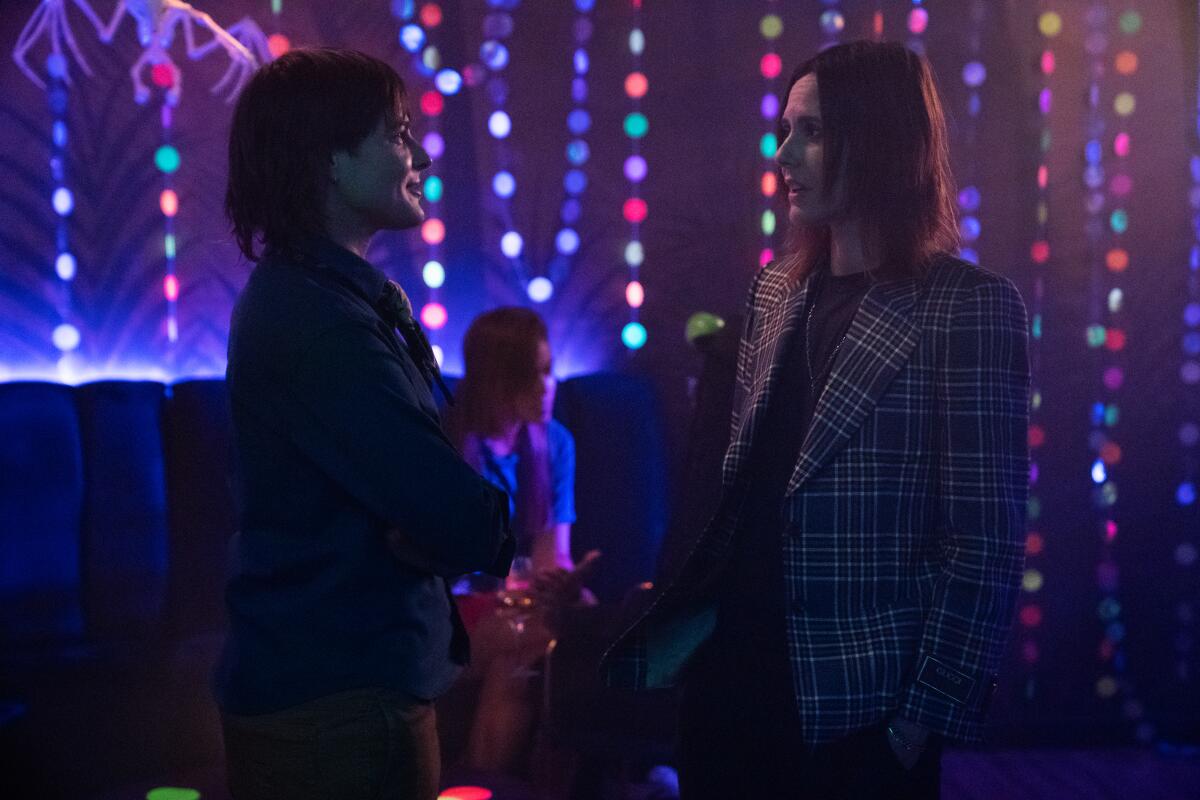
‘The L Word’
Queer women are all over television in 2024. According to GLAAD, for the 2023-24 season there were more LGBTQ women than men on broadcast television for the fifth straight year, and most of those characters are lesbians. Television wasn’t always so sapphic, which is why Showtime’s pioneering series about a group of West Hollywood lesbians and bisexual women is worth revisiting. During its six-season run from 2004-09 on Showtime, the show was like a lesbian “Bachelor in Paradise,” but with more emotional drama, way chicer pantsuits (but just as much skin) and franker queer sex. It helped that actual queer women were behind the show, including Ilene Chaiken, the show’s creator, and the writers Guinevere Turner and Rose Troche. The original series has had real legs: “The Real L Word,” a 2010 reality dating show, is streaming on Paramount+, and a 2019 series reboot, “The L Word: Generation Q,” is available to rent or buy on most major platforms. (Streaming on Paramount+.)
‘Noah’s Arc’
It lasted only two seasons (2005 to 2006) when it aired on LGBTQ+ network Logo, but this big-hearted series about best friends — played by Darryl Stephens, Jensen Atwood, Christian Vincent, Doug Spearman and Rodney Chester — remains a touchstone of Black queer television. Only a handful of Black gay male characters had appeared on television before, on the “Sanford and Son” spinoff “Sanford Arms,” and on the ‘90s sitcom “Moesha.” But this series, created by Patrik-Ian Polk, was different: It was the first American drama with a cast of all-Black and gay characters. Set in Los Angeles, the protagonists experienced the same degrees of love (life-changing) and romance (it’s complicated) that white characters before them took for granted. The series helped set a course for shows, in a variety of genres, that featured positive portrayals of Black gay male characters, from “Brooklyn Nine-Nine” to “Pose.” (Streaming on Paramount+.)
‘Queer as Folk’
When this show debuted in the U.K. in 1999 on the cusp of Y2K, jaws dropped. On television, gay men were generally sad clowns and tragic loners. Here, they felt emotions, loved their supportive moms and had sex with the kind of frankness never seen on U.S. television. (In its early years, American audiences could watch “Queer as Folk” only on bootleg VHS tapes.) Showtime’s 2000 American remake, set in Pittsburgh, had its charms too, eventually running several seasons longer than its British counterpart. (For completists only, there’s also Peacock’s 2022 “Queer as Folk” reboot.) But it’s the British original — equal parts ‘90s time capsule and old-school melodrama — that today comes across as a forward-looking progenitor of “Looking” and other 21st century shows about gay characters who are fully, messily, truthfully human. (The American version streams on Paramount+; the British version streams on Pluto and Prime Video.)
The complete guide to home viewing
Get Screen Gab for everything about the TV shows and streaming movies everyone’s talking about.
You may occasionally receive promotional content from the Los Angeles Times.